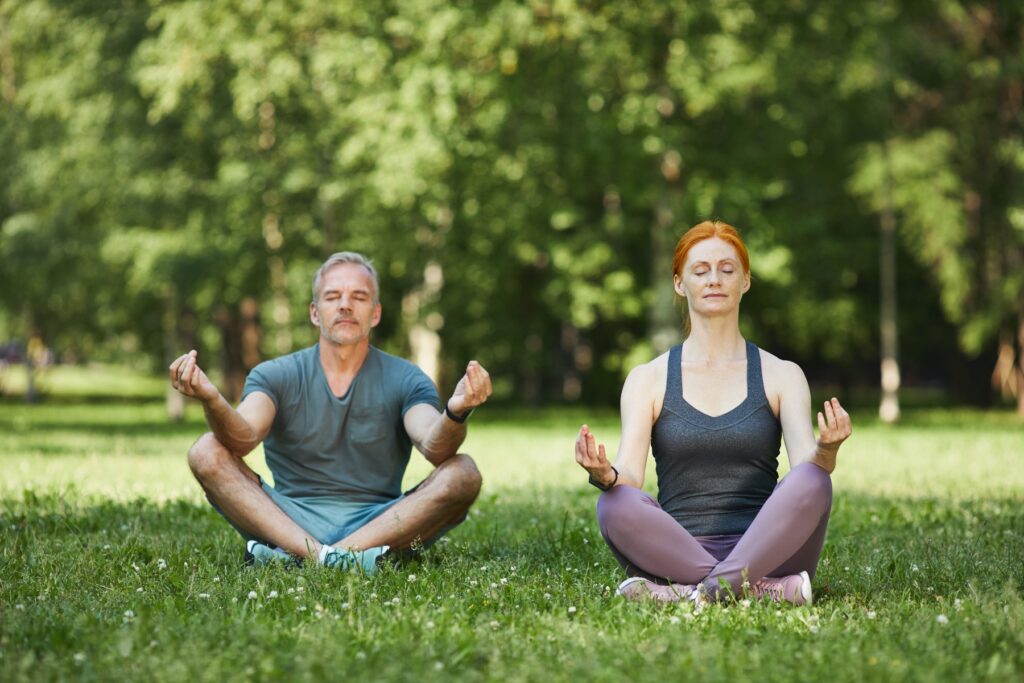
When it comes to self-care practices, mindfulness meditation is one that has been gaining popularity in recent years. Not only is it a great way to relax and unwind, but it also has numerous health benefits that make it a worthwhile practice to incorporate into your daily routine. In this guide, we will take a deep dive into the benefits of mindfulness meditation and provide you with tips and tricks to help you get started.
What is Mindfulness Meditation?
Firstly, let’s talk about what mindfulness meditation actually is. Mindfulness is the practice of being present in the moment, fully aware of your surroundings, your thoughts, and your emotions, without judgment. When we meditate mindfully, we focus our attention on the present moment, usually through the sensations of our breath, and observe our thoughts as they come and go without getting caught up in them. It sounds simple, but it can be a challenging practice to master. However, the benefits of mindfulness meditation make it well worth the effort.
One of the most significant benefits of mindfulness meditation is its ability to reduce stress and anxiety. In today’s fast-paced world, stress and anxiety are prevalent issues that can have serious consequences on our mental and physical health. By practicing mindfulness meditation, we can learn to be more relaxed and less reactive to stressors, leading to a greater sense of calm and well-being.
In addition to reducing stress and anxiety, mindfulness meditation has been shown to have numerous other health benefits. For example, research has shown that it can help improve cognitive function, including attention and memory, as well as emotional regulation and sleep quality. It has also been shown to be effective in reducing symptoms of depression and chronic pain, and in improving cardiovascular health.

Tips and Tricks for Mindfulness Meditation
So, how do you get started with mindfulness meditation? Here are some tips and tricks to help you incorporate this practice into your daily routine:
- Find a quiet place where you won’t be disturbed. It doesn’t have to be a dedicated meditation space, but it should be a place where you feel comfortable and relaxed.
- Get comfortable. You can sit cross-legged on the floor, or in a chair with your feet flat on the ground. It’s important to sit with a straight back and a relaxed posture.
- Focus on your breath. Take a few deep breaths to center yourself, and then focus on the sensation of your breath as it moves in and out of your body. Try to keep your attention on your breath, even as thoughts come and go.
- Observe your thoughts without judgment. When thoughts do arise, don’t try to push them away or get caught up in them. Instead, simply observe them and let them go.
- Start with short sessions. If you’re new to mindfulness meditation, start with just a few minutes a day and work your way up to longer sessions as you become more comfortable with the practice.
Benefits of Mindfulness Meditation
Mindfulness meditation is a practice that has been gaining popularity in recent years for its numerous health benefits. This type of meditation involves being present in the moment, focusing on your breath and bodily sensations, and observing your thoughts without judgment. In this article, we will explore the many benefits of mindfulness meditation.
Reduces Stress and Anxiety
One of the most well-known benefits of mindfulness meditation is its ability to reduce stress and anxiety. By focusing on the present moment and not worrying about the past or the future, we can train our minds to be more relaxed and less reactive to stressors. A study published in the Journal of Consulting and Clinical Psychology found that mindfulness meditation can lead to significant reductions in stress and anxiety symptoms.
Improves Emotional Regulation
Mindfulness meditation can help improve our ability to regulate our emotions. By practicing mindfulness, we become more aware of our emotions and better equipped to manage them. A study published in the journal Emotion found that mindfulness meditation can lead to improvements in emotional regulation.
Enhances Cognitive Function
Research has shown that mindfulness meditation can lead to improvements in cognitive function, including attention and memory. A study published in the Journal of Alternative and Complementary Medicine found that mindfulness meditation can enhance cognitive control and executive functioning.
Reduces Symptoms of Depression
Mindfulness meditation has been shown to be effective in reducing symptoms of depression. A study published in the Journal of Consulting and Clinical Psychology found that mindfulness-based cognitive therapy can be effective in preventing relapse in individuals with a history of depression.
Improves Sleep Quality
Mindfulness meditation can also help improve sleep quality. A study published in JAMA Internal Medicine found that mindfulness meditation can lead to improvements in sleep quality and reductions in insomnia symptoms.
Lowers Blood Pressure
Mindfulness meditation has been shown to have positive effects on cardiovascular health. A study published in the Journal of Alternative and Complementary Medicine found that mindfulness meditation can lead to reductions in blood pressure.

Reduces Symptoms of Chronic Pain
Mindfulness meditation has been shown to be effective in reducing symptoms of chronic pain. A study published in the Journal of Pain found that mindfulness meditation can lead to reductions in pain severity and disability.
Enhances Self-Awareness
Mindfulness meditation can help enhance our self-awareness by allowing us to observe our thoughts, feelings, and bodily sensations without judgment. This can help us better understand ourselves and our reactions to different situations.
In conclusion, mindfulness meditation has numerous benefits for our mental and physical health. From reducing stress and anxiety to improving emotional regulation, cognitive function, and sleep quality, there are many reasons to practice mindfulness meditation. If you’re interested in starting a mindfulness meditation practice, there are many resources available, including guided meditation apps, online courses, and in-person classes.


No Comments